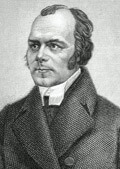the Fourth Week of Advent
Click here to join the effort!
Bible Commentaries
Meyer's Critical and Exegetical Commentary on the New Testament Meyer's Commentary
Old Testament
Jesus' life, teachings, and fulfillment of Old Testament prophecies as the Messiah. Mark
A fast-paced account of Jesus' ministry, focusing on his actions and sacrificial death. Luke
Jesus' life, emphasizing compassion for the marginalized and the universal scope of salvation. John
Theological reflections on Jesus as the Word of God, focusing on his divine nature and mission. Acts
The early church's growth, the apostles' ministry, and the spread of the Gospel. Romans
A theological treatise on salvation, grace, faith, and righteousness through Jesus Christ for all. 1 Corinthians
Paul addresses divisions, immorality, and spiritual gifts in the Corinthian church. 2 Corinthians
Paul's defense of his apostleship, his sufferings, and the power of God's grace. Galatians
Paul's defense of the Gospel of grace against legalism, emphasizing faith in Christ alone. Ephesians
Paul's teachings on the church's unity, spiritual blessings in Christ, and Christian conduct. Philippians
A letter of joy and encouragement, urging humility and faithfulness amid persecution. Colossians
Paul's emphasis on Christ's supremacy and warnings against false teachings. 1 Thessalonians
Encouragement to a young church, with teachings on holiness and Christ's return. 2 Thessalonians
Clarifications about Christ's return and exhortations to stand firm in faith. 1 Timothy
Guidance for church leadership, sound teaching, moral conduct, and defending the truth of the gospel. 2 Timothy
Paul's final exhortations to Timothy, emphasizing perseverance and faithfulness. Titus
Instructions for establishing order in the church, promoting sound doctrine, and living with integrity. Philemon
A personal appeal for the forgiveness and restoration of a runaway slave, Onesimus. Hebrews
An insightful look at Christ's supremacy, priesthood, and the fulfillment of prophecies. James
Practical wisdom on living out one's faith through good works and righteous behavior. 1 Peter
Encouragement for suffering Christians to remain faithful and hopeful in their trials. 2 Peter
A reminder to grow in faith, resist false teachings, and remain steadfast awaiting His return. 1 John
Teachings on love, obedience, and assurance of salvation through fellowship with God. 2 John
A letter encouraging love, obedience to God's commands, caution against teachings that deny Christ's truth. 3 John
A personal letter commending hospitality and warning against arrogance in church leadership. Jude
A strong warning against false teachers and a passionate call to defend the faith and uphold the truth. Revelation
Apocalyptic visions of God's ultimate victory, Christ's return, and the new heaven and earth.
Author's Biography
Heinrich August Wilhelm Meyer, a name of significant repute in theological scholarship, was a German Protestant pastor and biblical scholar born in Gotha in 1800. Meyer is best remembered for his critical and comprehensive work, "Meyer's Critical and Exegetical Commentary on the New Testament," a series that has left an indelible mark on New Testament studies. This monumental work, often simply referred to as "Meyer's Commentary," spans multiple volumes, each dedicated to a specific book of the New Testament, and stands as a testament to Meyer's meticulous scholarship, evangelical conviction, and unwavering dedication to the Scriptures.
Meyer's approach to biblical exegesis was both rigorous and methodical, characterized by a detailed analysis of the Greek text and a keen attention to grammatical and historical contexts. His work bridges the gap between academic scholarship and ecclesiastical theology, making profound insights accessible to pastors and lay readers alike. Meyer's commitment to the authority of Scripture and his ability to engage with contemporary theological debates of his time have ensured that his commentaries remain valuable to students of the Bible even today.
Throughout his career, Meyer's scholarly pursuits were deeply intertwined with his pastoral ministry, reflecting a belief that academic theology and practical Christian living are mutually enriching. His work exemplifies the ideal of scholarship in service of the church, a legacy that continues to inspire and inform biblical studies and pastoral ministry.
Heinrich Meyer passed away in 1873, leaving behind a body of work that continues to influence theological scholarship. His commentaries are cherished not only for their academic rigor but also for their contribution to understanding the New Testament in a way that resonates with both the scholarly community and the church at large. Heinrich Meyer's life and work embody the enduring value of combining scholarly excellence with a deep love for the Christian faith.
